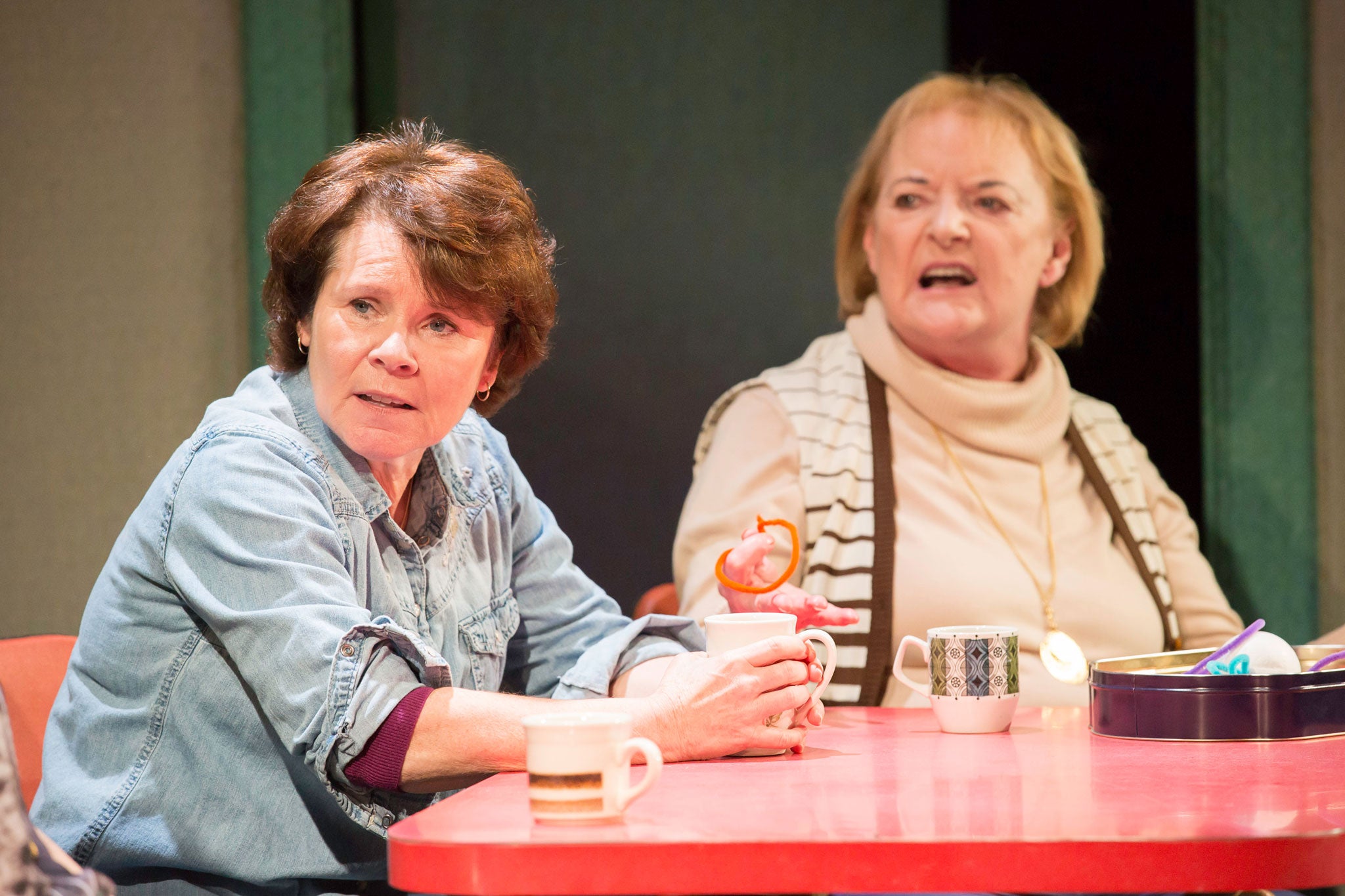Good People, theatre review: Imelda Staunton magnificent as tough single mother
Hampstead Theatre, London

Your support helps us to tell the story
From reproductive rights to climate change to Big Tech, The Independent is on the ground when the story is developing. Whether it's investigating the financials of Elon Musk's pro-Trump PAC or producing our latest documentary, 'The A Word', which shines a light on the American women fighting for reproductive rights, we know how important it is to parse out the facts from the messaging.
At such a critical moment in US history, we need reporters on the ground. Your donation allows us to keep sending journalists to speak to both sides of the story.
The Independent is trusted by Americans across the entire political spectrum. And unlike many other quality news outlets, we choose not to lock Americans out of our reporting and analysis with paywalls. We believe quality journalism should be available to everyone, paid for by those who can afford it.
Your support makes all the difference.American dramatist David Lindsay-Abaire first sprang to our attention on this side of the Atlantic when, in 2004, Sam Mendes chose to launch a new production company with Fuddy Meers, a relentlessly wacky but soft-centred farce about an amnesiac stroke-victim. Unimpressed by that, I approached Good People with fairly low expectations, figuring that it would be another of those US hits that are untransportable to these shores.
But the piece, receiving its UK premiere in a superlatively cast production that's directed with mordant aplomb by Jonathan Kent, is a reproof to my pessimism. True, in the final analysis, I think the play is flawed by sentimentality and an over-loading of the dice. But it asks provocative questions about the American class system and about the role that luck plays in separating the haves from the have-nots and it does so through the kind of artfully mortifying social comedy we associate with the author's compatriots: Bruce (Clybourne Park) Norris and Neil LaBute.
The setting is “Southie”, a downtrodden, blue-collar neighbourhood in South Boston which Lindsay-Abaire himself partly escaped by winning a day-boy scholarship to a prestigious private school. Imelda Staunton is magnificent as Margie, a tough, sharp-tongued single-mother with a severely handicapped adult daughter whom we first see begging to keep her dead-end job as a cashier at a dollar-store. She's chronically late not because she's feckless but because of the unreliability of the baby-sitter. Desperate for work, she hears that Mikey, a high-school boyfriend who has made good as a fertility doctor, is back in town and decides to appeal to him.
He is not overjoyed to see her. The moneyed medic's smugness and defensiveness (beautifully caught by Lloyd Owen) rile her into taunting him that he's “lace curtain Irish”. Stung by this, he invites her to party which is then genuinely cancelled. Offended at what she perceives to be a slight, Margie crashes his sleek Chestnut Hill home where she's initially mistaken for a caterer by Mikey's glamorous, upper-middle-class African-American spouse (excellent Angel Coulby). The resulting scene is excruciatingly funny (“How's the wine?” asks the rigidly reluctant host; “How the fuck would I know?” she quips) with the maritally disaffected wife falling over herself to be gracious and egging Margie on to tell stories about Mikey's past that cast doubt on his determined belief that he rose by sheer desert that she is wretched because of bad choices.
The eloquent expression “making your luck” nicely captures both the unfairness of life's lottery and the necessity of creative effort. Good People is in danger of simplifying this through polarisation – revealing the doctor to be an ungrateful comprehensive shit and positing in Margie a salt-of-the-earth heroine whose problems stem from misplaced self-sacrifice and whose belated surge of vindictive resentment is not as ugly as it seems. The latter's pluck, combative humour, mischief and those moments when the resilience falters and the desolation throws through are communicated with a lovely unsentimental warmth, though, in Staunton's richly convincing and rounded portrayal.
To April 5; 0207 722 9301
Join our commenting forum
Join thought-provoking conversations, follow other Independent readers and see their replies
Comments